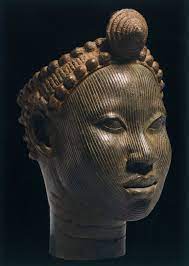Women During the Colonization of South Africa
Apr 25, 2023
This assignment explores the experiences of women during the colonization of South Africa. The history of South African colonization is long and complex, but in brief, it began with the Dutch East India Company's establishment of a trading post at Cape Town in 1652. From that point onward, colonists from various countries – including France, Germany, and Britain – would continue to arrive in the region and the population of European settlers would expand. This period of colonization had drastic effects on South African society, pushing many African ethnic groups off their traditional lands and into reserves or labor camps, as well as leading to increased racial segregation and discrimination.
The impact of colonialism was especially severe for women in South Africa. Even before the arrival of the Dutch, African women often faced gender inequalities in terms of their rights and status within society. However, the arrival of colonists exacerbated these issues as they imposed a new set of laws and rules that were intended to maintain racial segregation and give Europeans greater power over the native population. This meant that African women had even fewer rights than before and were forced to work in the fields or as domestic servants for colonial families. Women were also subjected to various forms of abuse and exploitation, including sexual assault and being separated from their children.

In addition, women also faced a lack of access to education and healthcare during this period. Additionally, many African women were denied the right to own land or property, which limited their economic opportunities and kept them trapped in cycles of poverty.
Although the situation for women in South Africa during this period was dire, there were some women who were able to find ways to resist colonialism and fight for their rights. These included individuals such as Sarah Baartman, a Xhosa woman who campaigned against colonial forces and their policies, as well as women who joined the African National Congress (ANC) in its efforts to resist apartheid.
In conclusion, it is clear that the colonization of South Africa had a major impact on women in the region. These women were subjected to a range of injustices and inequalities which included exploitation, lack of access to education and healthcare, and denial of the right to own property. However, there were still some women who were able to fight for their rights and work towards a more equitable society. Their stories are an important reminder of the resilient spirit of South African women in the face of adversity.
